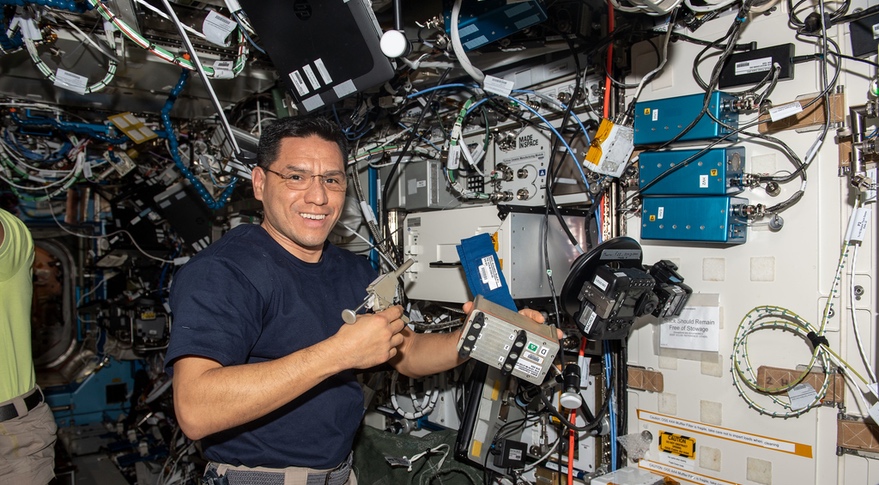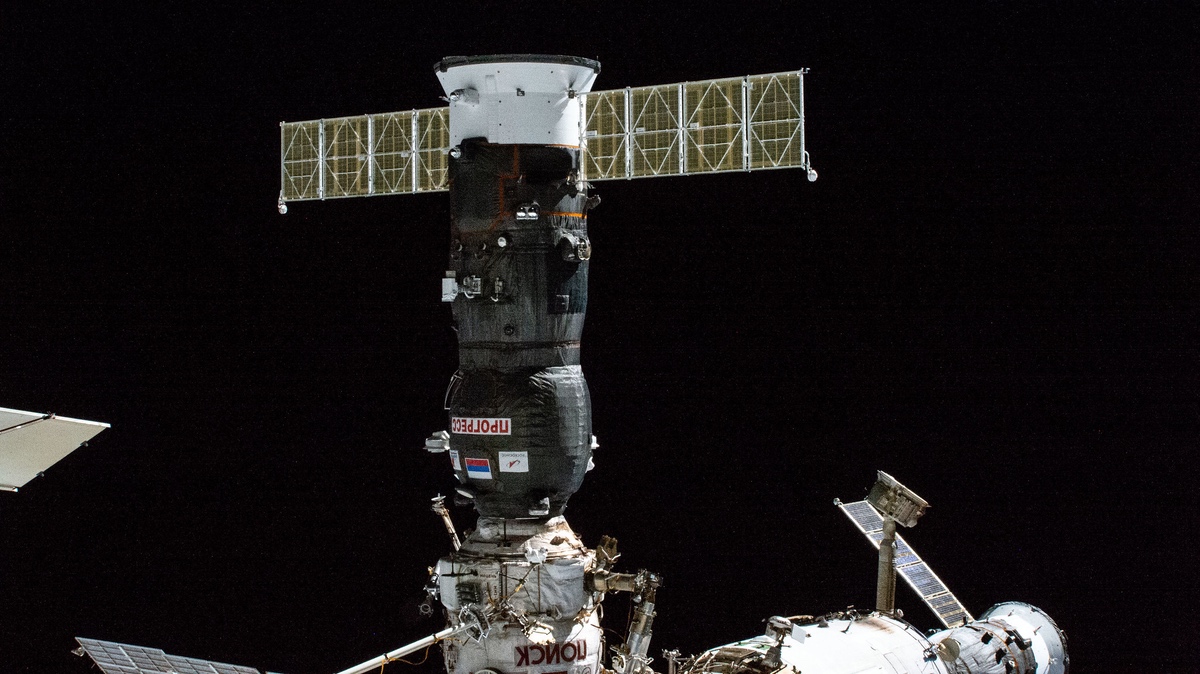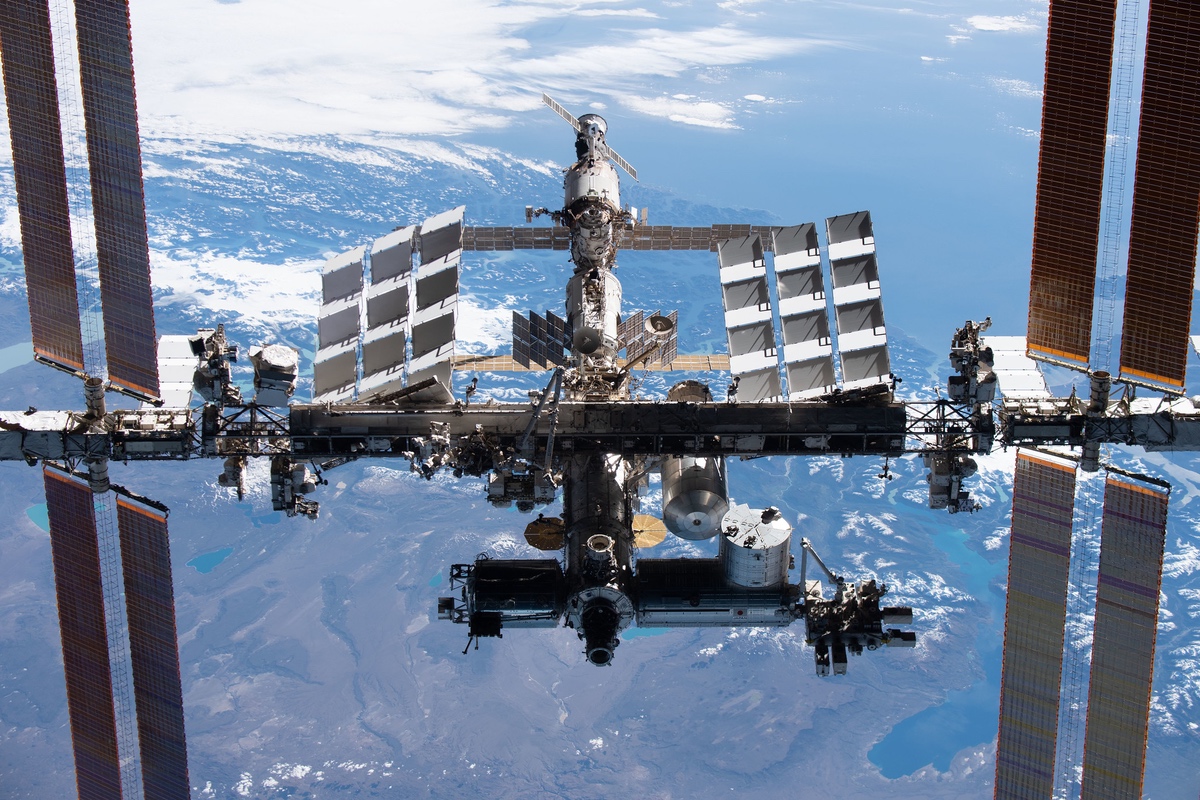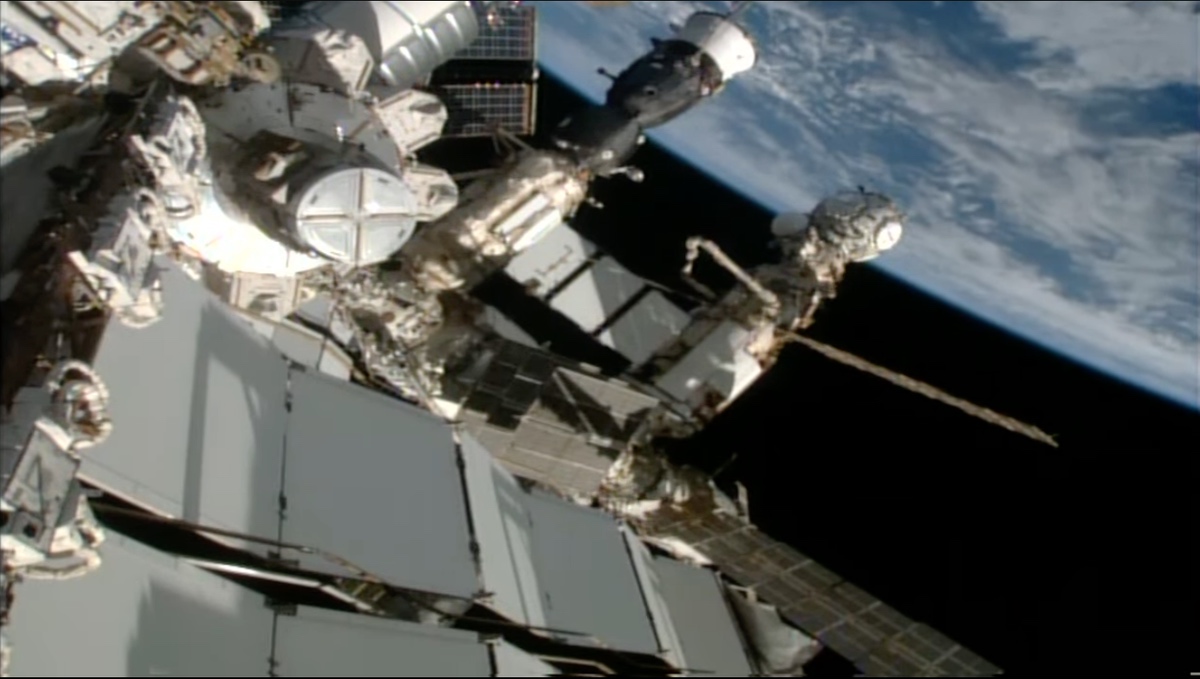
NASA still working on long-term plans for ISS seat barters - SpaceNews
As NASA prepares to launch another commercial crew mission with a Russian cosmonaut on board, it has yet to work out an agreement on future crew swaps.
You can install our site as a web app on your iOS device by utilizing the Add to Home Screen feature in Safari. Please see this thread for more details on this.
Note: This feature may not be available in some browsers.


Progress MS-21 - as well as Soyuz MS-21 from early - has now experienced a leak as well. Roscosmos is determining the cause. Meanwhile, Progress MS-22 docked safely to ISS this morning as Russian teams continue prepping Soyuz MS-22 for its emergency uncrewed launch this month.
Strugovets: The pressure in the thermal control system of the #ProgressMS21 service module is zero. All the cooling agent has leaked out.

Earlier today, Feb. 11, the uncrewed Roscosmos Progress 83 cargo spacecraft docked automatically to the aft end of the Zvezda service module at the International Space Station. The rendezvous and docking operations were conducted with no issues.
Meanwhile, engineers at the Russian Mission Control Center outside Moscow recorded a depressurization in the unpiloted Roscosmos Progress 82 cargo ship’s coolant loop, which is docked to the space-facing Poisk module at the station. Progress 82, which arrived to the space station in October 2022, is scheduled to undock Friday, Feb. 17, filled with trash and will be deorbited over the Pacific Ocean.
The reason for the loss of coolant in the Progress 82 spacecraft is being investigated. The hatches between the Progress 82 and the station are open, and temperatures and pressures aboard the station are all normal. The crew, which was informed of the cooling loop leak, is in no danger and continuing with normal space station operations.
NASA specialists are assisting their Russian counterparts in the troubleshooting of the Progress 82 coolant leak. Officials are monitoring all International Space Station systems and are not tracking any other issues.
In my opinion, Roscosmos probably lied about the cause of the Soyuz leak.A critical question is what caused the depressurization event observed Saturday. It seems improbable that a second micrometeorite would have struck as second Russian spacecraft in less than two months. This raises doubts about whether the Soyuz MS-22 failure was indeed a micrometeorite issue—Russia has never released images of the impact site—and instead perhaps a manufacturing defect.

My eye is equally untrained- maybe a coolant leak through poor design or fatigue look exactly like that from the outsideTo my completely untrained eye, the photo Roscosmos released do seem to support their statement that the Soyuz coolant leak was caused by an external impact. But it boggles the mind to think that an external impact also is responsible for the Progress coolant leak. What are the odds?
View attachment 907222
My eye is equally untrained- maybe a coolant leak through poor design or fatigue look exactly like that from the outside


 spacenews.com
spacenews.com
A bit surprising, but a tacit acknowledgement by Russia that without the ISS they won’t have a presence in space. Russia’s recent grandiose announcement about building their own space station is just vaporware.
Russia commits to ISS extension to 2028
The Russian government has agreed to continue participation in the International Space Station to at least 2028, the last partner to agree to an extension.spacenews.com
Hmm, I think that is the EVA from two weeks ago:Livestream of two astronauts on an EVA to install a new rollout solar array that was recently delivered to the ISS by a Cargo Dragon mission. Pretty amazing to watch.

Oops.Hmm, I think that is the EVA from two weeks ago:

Right. Micrometeoroids only cause a problem on the ISS when they impact Russian-built radiators. If they hit anywhere else, no problem!The incident is the third time in less than a year that a Russian vehicle at the ISS has suffered a coolant leak. …
The two leaks raised suspicions of a design or manufacturing flaw with the spacecraft. However, Roscosmos concluded that the leaks were caused by impacts with micrometeoroids or orbital debris. NASA officials accepted that conclusion.


